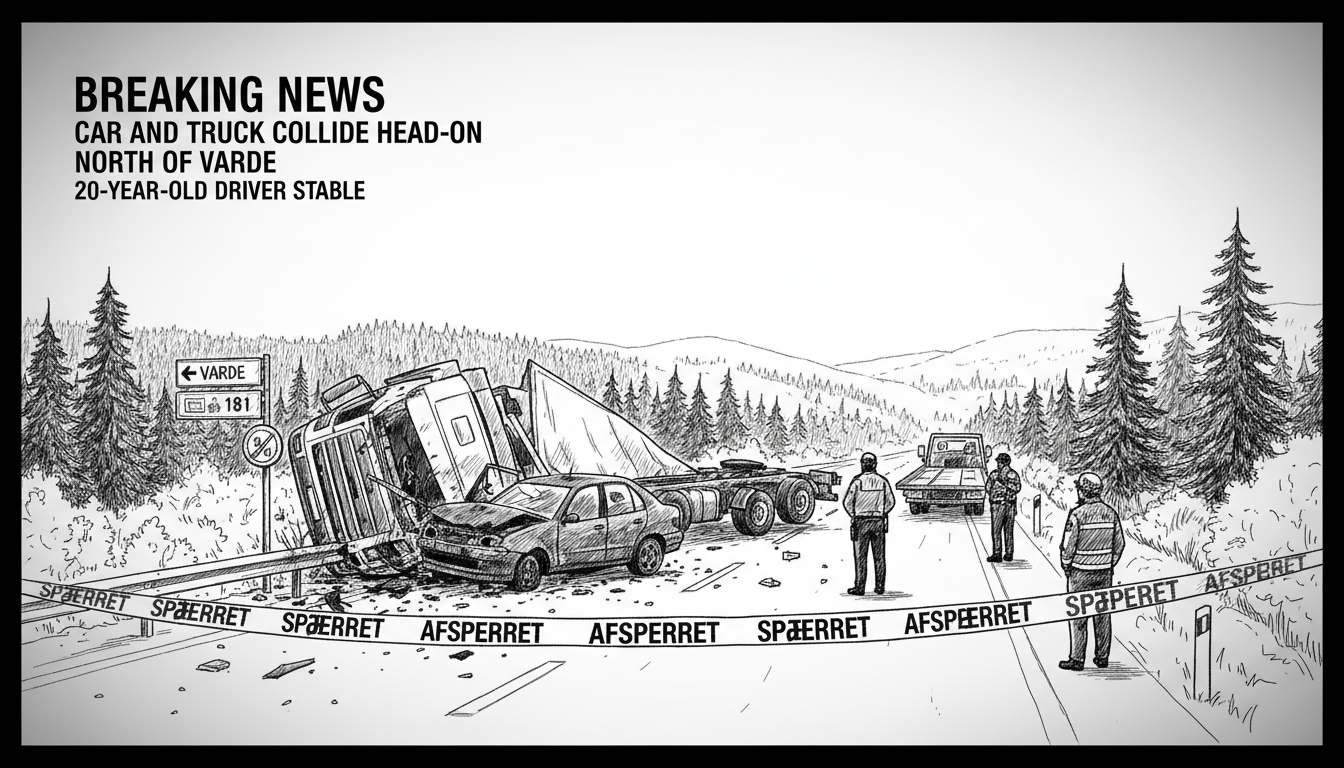A serious traffic accident occurred north of Varde in Denmark on Monday afternoon. A passenger car collided head-on with a truck on Ringkøbingvej. The 20-year-old male driver of the car sustained serious injuries in the crash.
Police confirmed the injured driver is now in stable condition. Authorities have notified his family about the incident. Emergency services responded quickly to the scene following the collision.
The head-on collision forced police to close Ringkøbingvej for several hours. Officers directed northbound traffic to use Ølgodvej as an alternative route. Southbound drivers needed to take Ndr. Stavskærvej instead.
Police announced they had completed their work at the scene shortly before 7 PM. Crews cleared the vehicles and reopened the roadway to normal traffic.
This accident highlights ongoing road safety concerns in rural Denmark. Head-on collisions remain particularly dangerous on two-lane highways common throughout Jutland. The region's roads often lack physical barriers separating opposing traffic lanes.
Danish traffic safety records show mixed progress in recent years. While overall fatalities have decreased, serious accidents continue to occur regularly. Rural roads like Ringkøbingvej present specific challenges with their combination of high speeds and limited separation between directions.
Local drivers know these routes well but sometimes become complacent about risks. The flat, straight stretches common in western Jutland can encourage higher speeds. Police regularly conduct traffic enforcement campaigns in the area.
Monday's collision will likely prompt renewed discussion about road safety improvements. Previous accidents on similar roads have led to calls for more median barriers. Such infrastructure changes come with substantial costs that municipalities must balance against other priorities.
The young driver's recovery will likely take considerable time given the seriousness of his injuries. Head-on collisions typically generate tremendous force that causes complex trauma. Modern vehicle safety systems provide some protection but cannot eliminate all risks in high-speed impacts.
Danish emergency response systems generally perform well in rural accidents. The country's comprehensive healthcare system ensures accident victims receive appropriate medical care regardless of location. This network includes both local hospitals and specialized trauma centers.
Road closures like Monday's create significant disruptions for local communities. Alternative routes often add substantial travel time for commuters and commercial vehicles. The economic impact of such closures accumulates quickly in affected areas.

